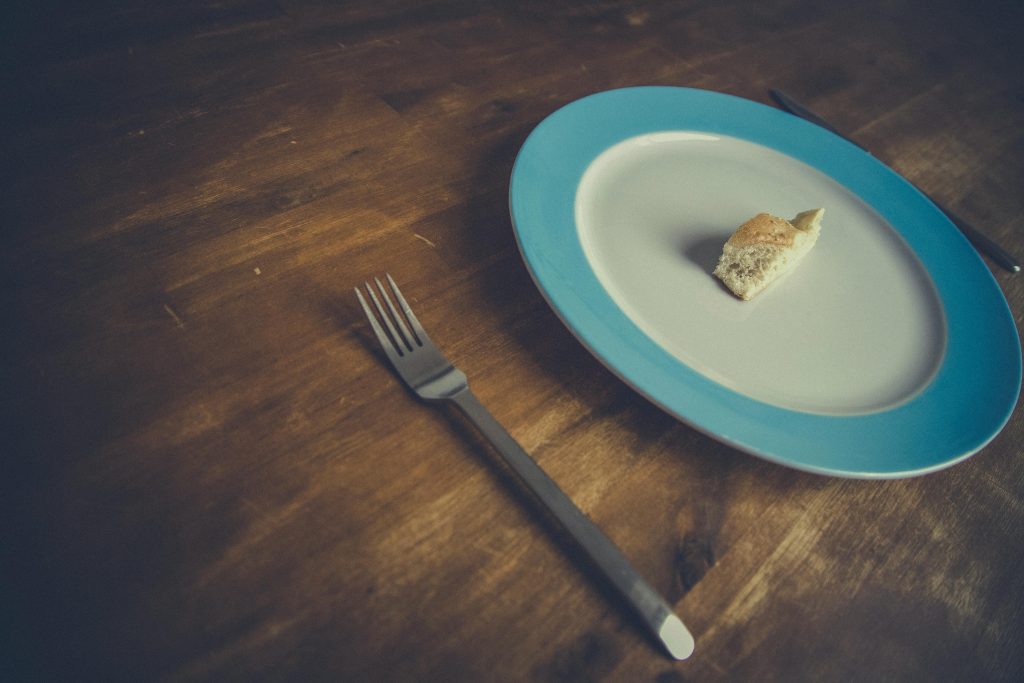The Dark Side of Endless Dieting: How It Can Lead to Eating Disorders
In a society obsessed with thinness and quick fixes, endless dieting often feels like a rite of passage. Magazines, social media influencers, and even well-meaning friends regularly promote the next big diet trend, promising that weight loss is the ultimate key to happiness. But behind the allure of these promises lies a dangerous truth: endless dieting can pave the way to disordered eating habits and full-blown eating disorders.
In this blog post, we’ll explore the relationship between chronic dieting and eating disorders, the psychological and physical toll it takes, and how to foster a healthier relationship with food and your body.

The Prevalence of Diet Culture
Diet culture promotes the belief that thinness equates to health, worth, and beauty. It’s a pervasive system that infiltrates our daily lives, from workplace conversations about “clean eating” to commercials for weight-loss products. This constant exposure to diet culture creates a fertile ground for the normalization of restrictive eating behaviors.
Why Diet Culture Is So Harmful
- Focus on Restriction: Many diets emphasize cutting out entire food groups, which can lead to feelings of deprivation and obsessive thinking about food.
- Unrealistic Standards: Most diet programs promote an “ideal” body type that is unattainable for the majority of people, leading to feelings of failure and inadequacy.
- Shame and Guilt: When diets inevitably fail—because they’re often unsustainable—individuals blame themselves rather than the flawed system.
This vicious cycle creates the perfect storm for the development of eating disorders.

The Connection Between Chronic Dieting and Eating Disorders
Endless dieting doesn’t just affect your physical health—it can distort your relationship with food and your body. Over time, this can escalate into eating disorders like anorexia nervosa, bulimia nervosa, or binge eating disorder.
1. Restrictive Dieting and Anorexia Nervosa
Restrictive diets can set the stage for anorexia nervosa, a condition characterized by an intense fear of gaining weight and severe food restriction.
- How It Starts: Often, it begins innocently enough with a desire to “eat clean” or lose a few pounds.
- How It Progresses: As weight loss becomes associated with success and self-worth, individuals may become more restrictive, leading to dangerous levels of malnutrition.
2. The Binge-Restrict Cycle and Bulimia Nervosa
Dieting can also contribute to the binge-restrict cycle, a hallmark of bulimia nervosa.
- Triggering Binges: Restriction can lead to intense cravings and overeating, as the body tries to compensate for a lack of nutrients.
- Feelings of Shame: After a binge, individuals often feel guilty and attempt to “undo” the damage through purging, excessive exercise, or further restriction.
3. Emotional Eating and Binge Eating Disorder
For some, the emotional toll of chronic dieting leads to binge eating disorder (BED).
- Root Cause: Feelings of failure, frustration, or deprivation from dieting can trigger emotional eating episodes.
- Impact: Unlike bulimia, individuals with BED don’t purge after a binge, leading to feelings of shame and further dieting attempts.

The Psychological Toll of Chronic Dieting
1. Obsession with Food and Weight
Endless dieting can cause a preoccupation with food, turning meals into a source of stress rather than nourishment. Thoughts about what, when, and how much to eat can dominate daily life.
2. Low Self-Worth
When diets fail, many people internalize the failure as a personal shortcoming. This can erode self-esteem and foster negative self-talk.
3. Anxiety and Depression
The pressure to achieve a certain body type and the guilt associated with eating “off-plan” can contribute to anxiety and depressive symptoms.
4. Social Isolation
Dieting can lead to social withdrawal, as individuals avoid events or gatherings where they might be tempted to eat foods that are “off-limits.”

The Physical Consequences of Endless Dieting
1. Metabolic Damage
Yo-yo dieting can slow your metabolism over time, making it harder to lose weight and easier to gain it back.
2. Nutritional Deficiencies
Restrictive diets often lack essential nutrients, leading to deficiencies that can affect energy levels, immunity, and overall health.
3. Hormonal Imbalances
Chronic dieting can disrupt hormones related to hunger and fullness, such as ghrelin and leptin, making it difficult to regulate your appetite.
4. Long-Term Health Risks
- Heart problems, due to nutrient deficiencies or extreme weight fluctuations.
- Bone density loss from inadequate calcium and vitamin D intake.
- Gastrointestinal issues, including constipation or bloating.

Signs of a Problematic Relationship with Dieting
It’s important to recognize when dieting has crossed the line into harmful territory. Here are some red flags:
- Constantly thinking about food, weight, or calories.
- Feeling anxious or guilty after eating.
- Avoiding social situations involving food.
- Using food as a reward or punishment.
- Frequently starting new diets because previous ones didn’t “work.”
If you notice these behaviors, it may be time to re-evaluate your approach to food and weight.

How to Break Free from the Dieting Cycle
1. Shift Your Mindset
Instead of focusing on weight loss, prioritize overall well-being. This includes mental, emotional, and physical health.
2. Adopt Intuitive Eating
Intuitive eating encourages you to listen to your body’s hunger and fullness cues rather than following rigid diet rules. The principles include:
- Eating when you’re hungry and stopping when you’re full.
- Allowing yourself to enjoy all foods without guilt.
- Respecting your body and rejecting the diet mentality.
3. Focus on Nourishment
Choose foods that make you feel energized and satisfied rather than categorizing them as “good” or “bad.”
4. Seek Support
Working with a registered dietitian, therapist, or support group can help you develop a healthier relationship with food and your body.
5. Challenge Societal Norms
- Surround yourself with body-positive influences.
- Educate yourself on the harms of diet culture and advocate for a more inclusive view of health.

Fostering a Healthy Relationship with Food and Your Body
True health isn’t about fitting into a certain size or hitting a specific weight. It’s about feeling strong, energized, and confident in your own skin. By letting go of the dieting mindset, you can begin to heal your relationship with food and embrace the life you deserve.

Conclusion: Embrace Your Worth Beyond Diets
Endless dieting not only fails to deliver lasting results but also risks your physical and mental health. It’s time to reject the cycle of restriction and embrace a more balanced, sustainable approach to eating and self-care.
Remember, your worth is not determined by your weight, and the path to true health lies in self-acceptance, nourishment, and kindness toward yourself. The sooner we let go of the dieting mentality, the sooner we can begin to truly live.

💬 Join the Bariradka Transformation Support group on Telegram!
Get exclusive tips, behind-the-scenes content, and chat directly with the author.
➤ Join the Community

